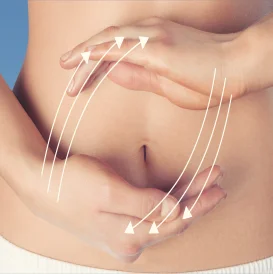
Department of General & Laparoscopic Surgery
Welcome To Gangasheel Hospital
What is Cholecystitis ?
Cholecystitis (ko-luh-sis-TIE-tis) is inflammation of the gallbladder. The gallbladder is a small pear-shaped organ located on the right side of the abdomen (belly) below the liver. The gallbladder contains digestive juices (bile) that are secreted into the small intestine.
Most often cholecystitis is caused by gallstones that block the ducts that leave the gallbladder. This can cause bile to build up and cause inflammation. Other causes of cholecystitis include bile duct problems, tumors, serious illnesses, and certain infections.
Left untreated, cholecystitis can lead to serious and sometimes life-threatening complications, including gallbladder rupture. Treatment of cholecystitis often includes surgery to remove the gallbladder.
- Severe right upper quadrant or mid-abdominal pain
- Pain radiating to right shoulder or back
- Lower abdomen tender to touch
- Nausea
- Vomiting
- Gallbladder symptoms are common after meal
Symptoms of cholecystitis may include
Cholecystitis is a condition in which the gallbladder becomes inflamed. Inflammation of the gallbladder can be caused by:
- Gallstones: Most commonly, cholecystitis is the result of hard particles (gallstones) occurring in the gallbladder. Gallstones can block the duct through which bile leaves the gallbladder (the cystic duct). Bile builds up in the gallbladder and causes inflammation
- Tumor: A tumor prevents the gallbladder from properly draining bile. This causes a buildup of bile acids, which can lead to cholecystitis.
- Bile Duct Obstruction: Stones, thick bile, and small particles (sludge) can block the bile ducts and cause cholecystitis. Bending or tearing of the bile ducts can also lead to blockage.
- Infection: AIDS and certain viral infections can cause gallbladder inflammation.
- Serious Illness: A very serious illness can damage blood vessels and reduce blood flow to the gallbladder, causing cholecystitis
You can reduce your risk of cholecystitis by taking the following steps to prevent gallstones:
- Lose weight slowly: Rapid weight loss can increase the risk of gallstones.
- Maintain a healthy weight: Being overweight increases your chances of developing gallstones. To achieve a healthy weight, reduce calories and increase physical activity. Maintain a healthy weight by eating right and exercising.
- Choose a healthy diet: A high-fat, low-fiber diet may increase the risk of gallstones. To lower your risk, choose a diet high in fruits, vegetables, and whole grains.
Some people with cholecystitis require hospitalization. You may have to give up solid and liquid foods for a while. Instead, you will be given intravenous fluids along with pain relievers and antibiotics
Doctors often recommend surgery for acute cholecystitis because of the high recurrence rate of inflammation associated with gallstones.
Outpatient surgery can be done if the risk of complications is low. If a person has already developed complications, emergency surgery is needed to remove the gallbladder.If there is an infection, the doctor may insert a tube through the skin into the gallbladder to empty it.
Yes, Cholecystitis treatment is available in Bareilly at Gangasheel Hospital by the team of expert General surgeon's in the city.
